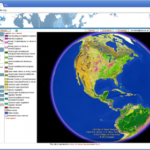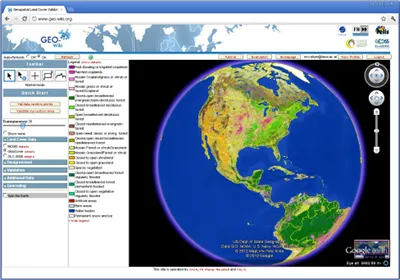 I would like to introduce to geo-folks who are not yet aware of this collaborative geo-platform called Geo-Wiki. Geo-wiki is a volunteered geographic information platform created to aid in validation of existing spatial information and collection of more new information through crowdsourcing. It is a web geo-application anchored on Google Earth API.
I would like to introduce to geo-folks who are not yet aware of this collaborative geo-platform called Geo-Wiki. Geo-wiki is a volunteered geographic information platform created to aid in validation of existing spatial information and collection of more new information through crowdsourcing. It is a web geo-application anchored on Google Earth API.
The geo-wiki Project is a global network of volunteers who wish to help improve the quality of global land cover maps. Since large differences occur between existing global land cover maps, current ecosystem and land-use science lacks crucial accurate data (e.g. to determine the potential of additional agricultural land available to grow crops in Africa). Volunteers are asked to review hotspot maps of global land cover disagreement and determine, based on what they actually see in Google Earth and their local knowledge, if the land cover maps are correct or incorrect. Their input is recorded in a database, along with uploaded photos, to be used in the future for the creation of a new and improved global land cover map.
The application of Geo-Wiki is beyond simply improving land cover. It can also be used in deforestation prediction as it helped in n predicting future deforestation in Central Africa. Additionally, by combining five existing cropland data sets from sub-Saharan Africa, researchers have created a new map which has higher accuracy than existing maps and should reduce uncertainty and improve predictions in land use, vegetation, climate change, and earth systems modeling.
On Geo-wiki, volunteers could quickly do lots of stuffs such as view disagreement maps derived from recent land cover datasets, select from available high resolution images, upload and view geo-tagged pictures, determine which land cover type is found on ground and decide if the dataset is correct or incorrect.
Folks, let us collaborate and add more value to this project. As a collaborative platform, leveraging the power of the crowd (billion sensors), this is really gonna make a huge impact in our efforts to better model and monitor the ecosystem and climate change.
Sources: Geo-wiki.org, Google developers blog












